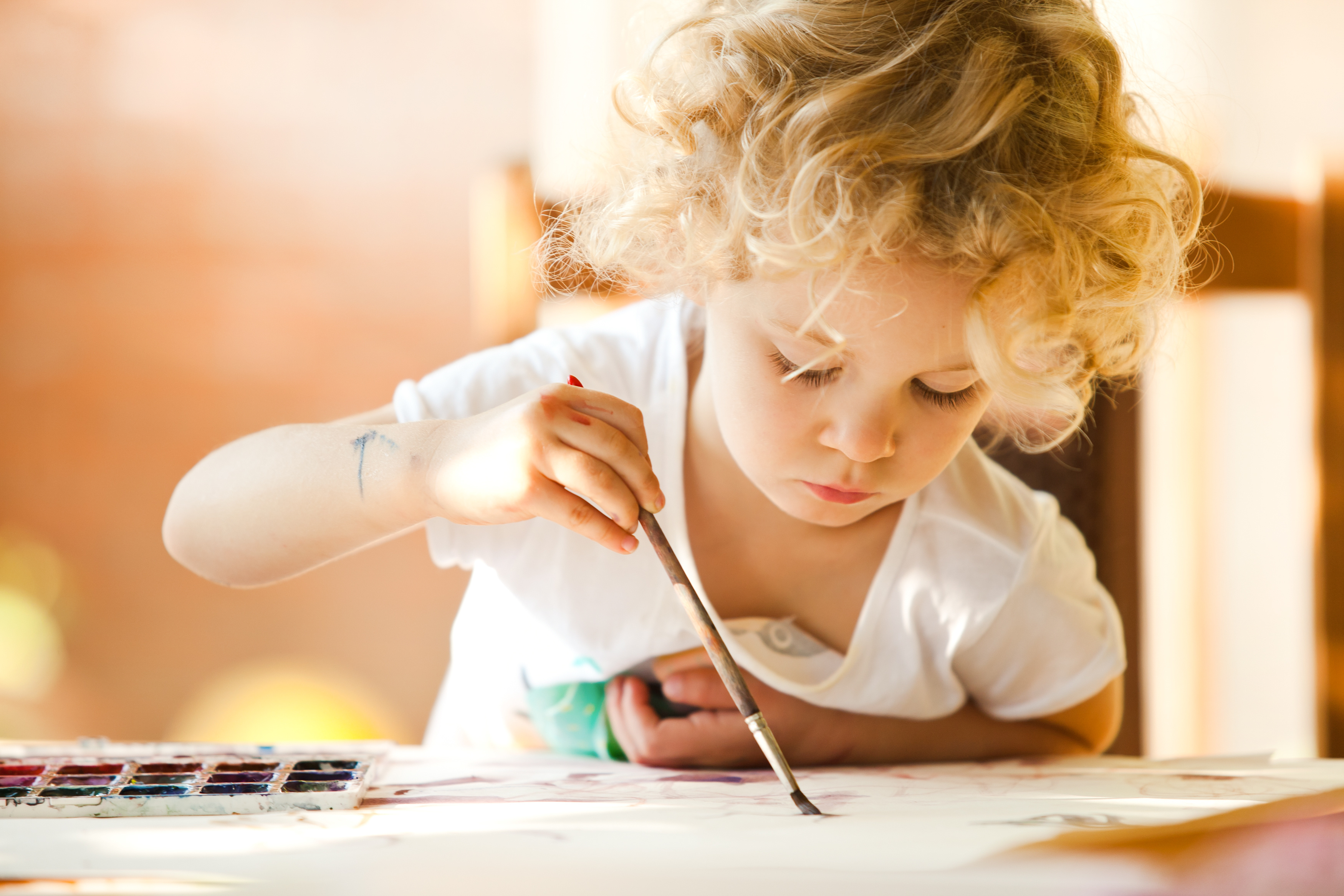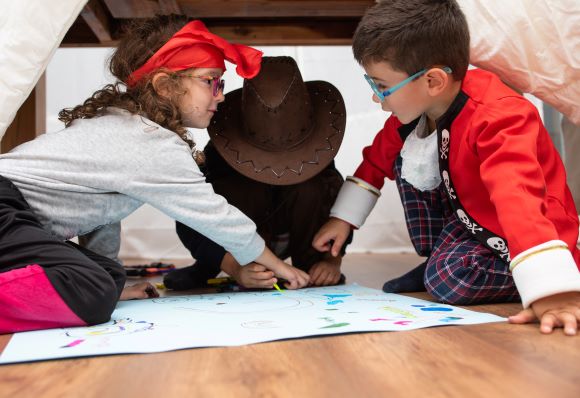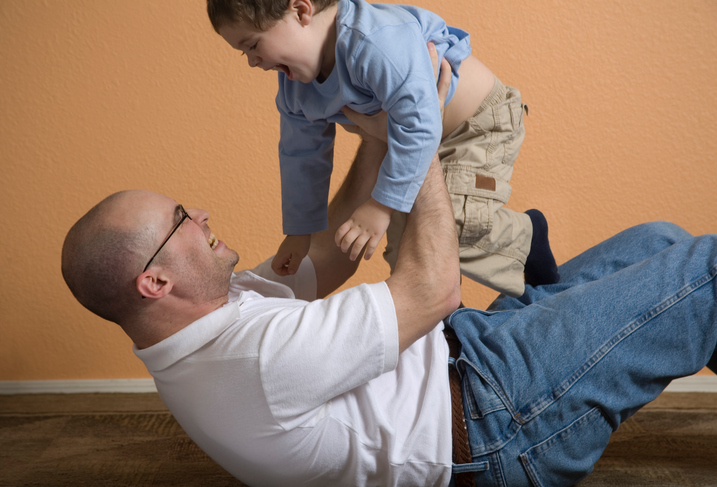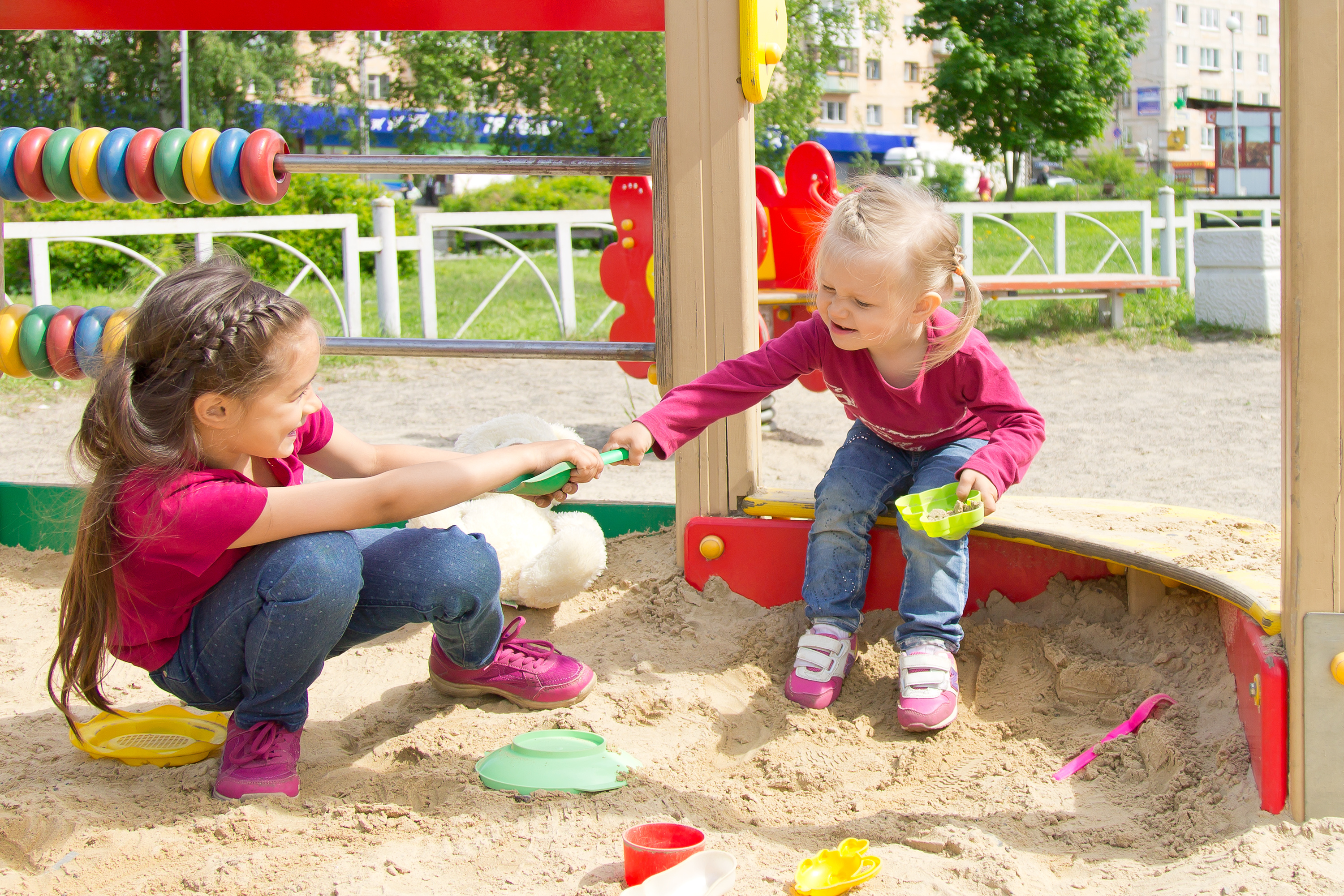Play and Creativity
Independent, self-directed play isn’t just fun for kids — it’s essential practice for life, and it shapes your child's resilience, confidence, and problem-solving skills, along with social skills.
When children make up games, negotiate rules with friends, and climb a little higher than feels comfortable, they’re learning to manage fear, solve problems, and calm themselves down. These experiences strengthen the brain’s wiring for resilience. Without them, children can feel less confident and more anxious when they face challenges later on.
Toddlers (1–3)
Toddlers need chances to explore freely, within safe boundaries. When they decide what to touch, build, or climb, they learn cause and effect and begin to trust their own judgment. Unsupervised moments (like rummaging through kitchen cupboards or testing balance on a step) give toddlers early practice in independence and problem-solving.
Preschoolers (3–5)
Preschoolers flourish in imaginative, child-led play. When adults don’t script every activity, children invent games, create stories, and solve small disputes with friends. These unsupervised moments teach them how to negotiate, compromise, and cope with frustration — all building blocks of emotional intelligence.
Elementary Schoolers (6–9)
In middle childhood, kids need ample time for neighborhood games, fort-building, and outdoor adventures without adults directing every move. Unstructured, peer-led play is where they practice taking risks, solving conflicts, and managing fear. When kids don’t get enough of this kind of play, they miss out on learning “I can handle it,” which is the foundation of resilience.
Preteens (10–12)
By the time kids reach the preteen years, many are glued to screens. And while they can get something out of playing video games online with friends — teamwork, strategy, and connection — this kind of play doesn’t offer everything they need for healthy development. What preteens actually need is a different kind of play: real-world, unsupervised, face-to-face adventures with peers.
Unsupervised play at this age often looks like roaming the neighborhood on bikes, inventing challenges with friends, or hanging out in treehouses or basements without constant adult oversight. These experiences let them test independence, take safe risks, and develop leadership. They also give kids practice negotiating group dynamics and working through conflicts — skills that can’t be learned from behind a screen.
Without enough of these opportunities, preteens can feel less capable when real challenges arise, which feeds into anxiety and self-doubt. The more chances they have to explore, experiment, and stretch their wings in play, the more resilient and confident they become.
***
Across all ages, children need regular chances for unstructured, unsupervised play. That’s where they practice taking small risks, solving problems with peers, and discovering that they can handle challenges. As children’s lives have become more scheduled and supervised, these opportunities have diminished — and so has the natural training ground for resilience. Without that practice, kids are more likely to feel overwhelmed and anxious when they face the inevitable stresses of growing up. Protecting time for play is one of the simplest, most powerful ways parents can help their children develop confidence and emotional strength.
Simple Ways to Make Space for Play
You don’t need to overhaul your schedule to give your child the gift of play. A few small shifts can make a big difference.
- Leave room for magic. Keep part of each day and weekend unscheduled so your child can dive into their own games and adventures.
- Keep screens in check. They're addictive for all of us, and easy to fall back on. But when they fill every spare moment, kids miss the chance to invent, imagine, and move. Set aside device-free times each day to leave space for real play to unfold.
- Step back. Let your child take the lead — inventing, experimenting, solving problems, and even working through little squabbles is how they grow.
- Cheer on safe risks. Climbing, balancing, exploring — these are the moments kids discover their own courage.
- Head outdoors. A yard, a park, or even the sidewalk can spark creativity, movement, and joy.
- Say yes to friends. Unstructured time with peers teaches kids cooperation and resilience — and gives them some of their happiest memories.
- Support solo play. Many kids have gotten so used to screens that they’ve forgotten how to play on their own. Gently encourage them to tinker, build, draw, or imagine without a device. At first they may complain, but with practice they’ll rediscover the joy of independent play — and the confidence that comes with it.
- It Takes a Village. Kids play more freely when families know each other and feel part of a community. Get to know neighbors, connect with other parents, or team up with friends who also value play. When children are surrounded by a web of caring adults, they gain more independence — and you gain peace of mind.
What Gets in the Way of Play
If play feels harder to come by these days, you’re not alone. Modern life makes it tricky — here are some of the biggest culprits:
- Overscheduled days. Packed calendars with school, homework, and activities can crowd out the open space kids need for free play.
- Screens everywhere. Phones, tablets, and games can quietly eat up hours that might otherwise go to outdoor adventures or pretend play.
- Parental worries. It’s natural to want to keep children safe, but too much hovering can mean fewer chances for kids to test themselves and build independence.
- Loss of community safety nets. In past generations, kids played freely in neighborhoods where adults knew each other and looked out for all the children. Today, with community ties weaker and families often more isolated, parents feel they must provide constant supervision. Add with busy roads and fewer walkable neighborhoods, the play that once happened naturally now feels harder to allow — even though most kids would do just fine with more freedom than they currently have.
- Fewer playmates. Kids no longer all meet up at the playground or count on a game of tag in the neighborhood. Many peers are tied up in structured activities or home on screens, making spontaneous, peer-led play much harder to come by.
The good news? Even small changes — like trimming one activity, setting aside screen-free time, or saying yes to a little neighborhood exploring — can open the door for play to flourish.
Start Here:
Why Play Matters
Independent, self-directed play isn’t just fun for kids. Whether your child is playing with other kids or by themself, play is essential practice for life, and it shapes your child's resilience, confidence, and problem-solving skills.
Read MoreSupporting Your Child To Play Independently
Dr. Laura....I have free play time on our schedule every morning, just like you recommend. But when I tell my kids to go play, they beg for screens, they whine that they don't know what to do, they don't have any good toys, they need me to play with them. This is the only chance I have to get any work done, and I need that time. Why can't they play by themselves?!"Read More
Secrets to Raise a Creative Child
Read More“Preempt the time spent on television and organized activities and have them spend it instead on claiming their imaginations. For in the end, that is all we have. If a thing cannot be imagined first -- a cake, a relationship, a cure for AIDS -- it cannot be. Life is bound by what we can envision.
I cannot plant imagination into my children. I can, however, provide an environment where their creativity is not just another mess to clean up but welcome evidence of grappling successfully with boredom. It is possible for boredom to deliver us to our best selves, the ones that long for risk and illumination and unspeakable beauty.
If we sit still long enough, we may hear the call behind boredom. With practice, we may have the imagination to rise up from the emptiness and answer.”
-Nancy H. Blakey
Play, Creativity and Toys
Do you buy gifts for your child at the holidays? At birthdays? Of course! Then you'll be interested in the research that experiences are more meaningful gifts than material objects, including toys. In fact, most of the toys we buy for our kids, including the ones they beg for, are played with for twenty minutes upon receipt, and then abandoned.
But there are some toys that kids play with over and over, through the years. Not coincidentally, these are also the toys that researchers tell us are beneficial for the child, meaning they will be good for the child's development and will sustain the child's interest over time.
The Family That Plays Together
From the infectious fun of side-splitting laughter to the exuberance of an impromptu pillow fight, infusing a spirit of joy and playfulness into your home nurtures your family like little else.
Read MorePlaying with Your Child: Games for Connection and Emotional Intelligence
Playing with your child for five minutes today, in a way that gets them laughing, is probably the best way you can spend five minutes with your child.
Read MoreToddlers: Social, Solitary and Parallel Play
Hi Dr. Markham,
We have a lovely 21-month-old who interacts very well with adults who reach out and connect with him one-on-one. We've also seen him "flirt" with adults with whom he wants to connect. He's fantastic at amusing himself, is enraptured by music and books, and very talkative. However, he doesn't seem interested in other kids. Instead, he seems to prefer playing by himself, in a different part of the room from everyone else.
My main experience of this is at my gym childcare center, where he goes three times a week for 90 minutes each. He stays by himself in the infant area, listening to his music and playing with toys (they have infant and toddler toys there). So I come from my workout to see him off by himself. The three adults often seem to leave him to himself.
When I get together with other moms and kids, as well, he seems to anticipate seeing everyone (he says their names with pleasure) but he mostly runs around. The kids seems to register him and act curious, but he doesn't reciprocate, though he connects with and likes some of the other moms.
My questions: (a) At the gym childcare, should I ask the adults to pay
special attention to him since, because he's off by himself, he doesn't
get their attention with the other kids who are swarming around them?
We have seen him come alive when someone takes the trouble to engage
him. (b) At this stage, is his playing in a separate area by himself,
or not being as curious about other kids as they are in him, a warning
of some sort, about his development? (c) Finally, what can I do as a
parent to provide him with social tools that will help him integrate
when he's ready?
Thanks very much for your input!
Seetha
4 Year Old - How to Help Make Friends on Playground
Hi Dr. Laura,
My 4 1/2 year old son is very outgoing and friendly. At the
playground, he will go up to children and try to initiate play or strike
up a conversation. I find that, often times, children around his age or
younger are either shy or, let's be frank, just rude. They will ignore
him completely, not speaking to him and just walking away, or one little
boy even told him once he already had his friends and he didn't need my
son to play. This broke my heart as I saw the sadness and confusion on
my son's face.
How do I teach him about this? What do I
say? I want him to understand that its not HIM, that whatever reason the
child isn't playing with him is that child's issue. I don't want him to
feel rejected and internalize that something is wrong with him, as is
what happened to me in elementary school.
I know the long-lasting damage this can cause. How can I help him be
confident and resilient enough to let this roll off his back without
negative effects?
He will be starting kindergarten in 4 months,
and I want him to be prepared. I've told him some children are shy,
etc., but I feel that isn't enough. Thanks for taking the time to answer
my question!
How do I stand up for my toddler at the playground?
Dr. Laura,
Now that my 2 year old is socializing more, I need advice about handling playground interactions.
She was at the sand box and realized someone had left the community shovel that they use at the other side of the park. She walked all the way over to the other side of the park to get it. When she returned to the sandbox, another 2 1/2 yr old boy took it from her before she had a chance to use it. The mom didn't intervene and I feel awkward "parenting" someone else's kid. My 2 year old looked to me for guidance, but I wasn't sure how to handle it so I didn't say anything. I found a pail and offered it to my daughter to see if she wanted to scoop sand with that instead. She didn't, of course.
So I said, "We'll let Oliver have a turn and then you can have a turn." So Oliver had a turn, then Aurora was able to get her hands on it after he'd thrown it to the ground. Then as soon as she picked it up, he grabbed it again. Again, the Mom was right there but didn't say anything. In the car I explained that sometimes she'll come across people who don't share and that sometimes can be mean. And that it was nice of her to let Oliver have the shovel. But part of me is crushed thinking I should have stuck up for her and let her know that it's ok to not let people walk all over her.
What to do in this situation so I know for next time?
Thank you!
How much dramatic play is too much?
My 4 year old daughter (who has a little brother) has recently begun almost constantly insisting that we play other identities than our own. (I'm a little baby, I'm Jason's mom, I'm a baby bird, I'm Hannah (one of her friend's mom's) - and "Dad you're Michael, or you're Henry, or you're the daddy bird" etc.)
I don't feel like imaginative play is something to discourage, and it feels like it is probably some sort of normal developmental phase and I shouldn't overthink it, but things have been kind of rocky at our house for about a year now because of some relatively serious relationship problems between mom and dad (me), and that makes me worried that she might be exhibiting a feeling of "wanting to be someone or somewhere else." Also, I feel like I don't get to see the real her as much as I used to, and I'm honestly just getting tired of all of this role playing. It feels constant. Is this normal?












